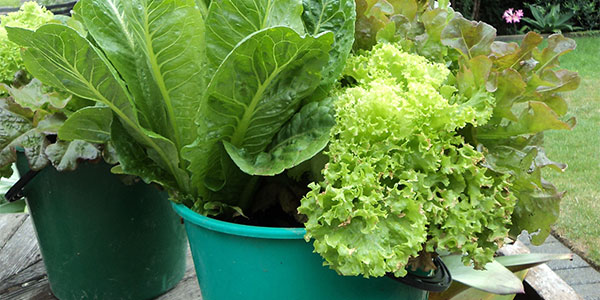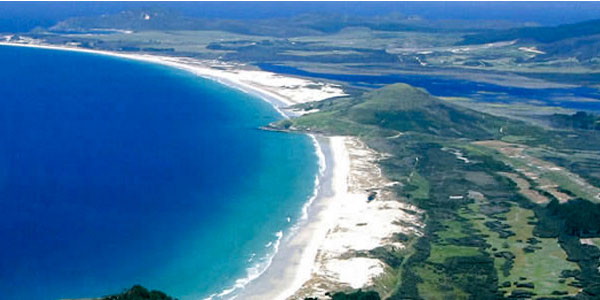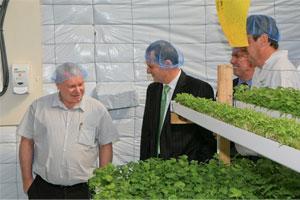Creating a legacy of a healthier world for our people and our planet.
The Berrysmith Foundation is focusing on education regarding sustainable food production systems, with a major focus on reducing meat consumption through its Meat Free Monday platform.

It is Ashley’s passionate desire to create a legacy of a healthier world for our people and our planet, that led to the establishment of the Berrysmith Foundation in 2009, which is funded entirely by Ashley from his personal income.
Significant projects undertaken by the Foundation, or by Ashley on a personal level, have been the 18- year project to reforest 600 acres of deforested land in the far North of New Zealand into native trees: www.puheke.co.nz, an Organic Cadetship in Samoa, the sustainable production of Spirulina, the pioneering of commercial hemp crops in Ashburton for processing into cold pressed hemp oil for use in the culinary industry, combined with high UMF Manuka Honey to create a range of natural, preservative-free skin care products and as a medicated skin oil for eczema treatment.
One of the most exciting projects undertaken was the five year aquaponics project in Motueka, started in 2009. Aquaponics is the world’s most sustainable production system to produce protein, vitamins and minerals for the world’s spiralling population growth.
The Motueka trial grew salmon and carp and the waste nutrients from the fish were used to grow lettuces. The system produced high yields of both fish and lettuce without wasting water or nutrients, creating a perpetual “closed loop” and stable ecosystem that produced high quality food.
Currently the Berrysmith Foundation is focusing on education regarding sustainable production systems, with a major focus on reducing meat consumption through its Meat Free Monday platform.
Past Projects
The Puheke Project
The Berrysmith Foundation has undertaken an 18- year project to reforest 600 acres of deforested land in the far North of New Zealand into native trees. CLICK HERE to read more about The Puwheke Restoration project.
CLICK HERE to read more about The Puwheke Restoration project. Aquaponics
Aquaponics is the chemical-free production of food. The Berrysmith Foundation New Zealand Motueka trial project grew salmon and carp with the waste nutrients from the fish used to grow lettuces. The system produced high yields of both fish and lettuce without wasting water or nutrients, creating a perpetual “closed loop” and stable ecosystem that produced high quality food. Two food sources are grown using one body of water, making aquaponics one of the most efficient food production systems in the world. The Berrysmith Foundation’s involvement in the Aquaponics Project is completed with the investment leading to an aid project in the Cook Islands which was a feature of the 2012 Pacific Leaders Forum. The Foundation has handed back the Aquaponics facility to Tasman Bay Herbs. Ashley’s mission to prove that Aquaponics is a financially viable and sustainable method to grow food is now complete. Links to Dr Wilson Lennard. https://www.aquaponic.com.au/ CLICK HERE to read Australiasian Aquaculture 2012
CLICK HERE to read Australiasian Aquaculture 2012 The Ashburton
Hemp Trial
The Berrysmith Foundation pioneered the trial of commercial hemp crops in Ashburton, New Zealand, for processing into cold pressed hemp oil for use in the culinary industry and also combined with high UMF Manuka Honey to create a range of natural, preservative-free skin care products and as a medicated skin oil for eczema treatment. The Spirulina Project
The Spirulina Project comprises a toilet system where the solid and liquid waste is separated. The urine is then sterilized in a solar sterilizer and is used as a nutrient to grow Spirulina, a superfood which can reverse malnutrition in third-world children with just a few grams per day. Some of the Spirulina is fed to fish and the balance used for direct consumption. Solid waste is fed to a biodigester and provides gas for cooking. The digested solid waste is then composted and used on fruit trees.
CLICK HERE to read how to grow your own Spirulina.
The Bucket
Gardens Project
Based on the belief that anybody can afford to make a bucket garden from an inexpensive bucket, some potting mix and a few plants purchased from the local garden center all for less than $10.00, the Berrysmith Foundation launched the Bucket Garden project.
Starting with easy to grow greens such as lettuce, silver beet, coloured beet for summer, kale for autumn and winter and New Zealand perpetual spinach for spring, the project produced amazing results.
Waste Management and Minimisation Plan submission to Auckland Council
The Berrysmith Foundation lodged a request for a verbal hearing at the Auckland Council Draft Waste Management and Minimisation Plan in March 2012 and supported this with a detailed submission using a green waste 240lit compost bin which was already available. The Foundation’s proposal was based around 3 to 6- month collection of home-composted kitchen waste as an alternative to the council’s proposed weekly pick-up of fresh wet waste. The proposal had several advantages which were assimilated in a detailed document including accurate estimates of carbon used in both scenarios.
Some advantages of the Berrysmith Foundation proposal included;
· Reduced collection costs (3-6 months) vs weekly
· Reduction in odours due to rotting vegetation
· Reduction in disease risk
· Reduction in vermin and other pests
· Reduction in carbon usage

CLICK HERE to read the Berrysmith Proposed Municipal Food Waste Management Submission

CLICK HERE to read more about the SOCS SULO Organics Collection System.
Cook Island Aquaponic Project
The Berrysmith Foundation aquaponics trial in the New Zealand region of Motueka, led by Dr Wilson Lennard, was designed to identify sustainable, efficient and intensive agricultural ecosystems to improve the health of our people and our planet.
With the concept proven, the Berrysmith Foundation supported a village model aquaponics project undertaken by Dr Wilson Lennard in the Cook Islands with the following objectives:
- Encouraging urban agriculture
- Factory farming bringing food production closer to the people
- Identifying nutritionally dense food that can be sustainably grown with low impact or uses a nutrient waste stream
Biological Horticulture Cadetship in Samoa
The Berrysmith Foundation funded one year of practical biological training in Samoa under Organic Matters Foundation and Soil Health Pacific.
The funding included a wage to cover cost of living in Samoa during training and an Organic Diploma course.
Upon completion of the training a job opportunity in organic farming in New Zealand was offered.
Organic Matters Foundation partnered with Berrysmith Foundation to deliver a soil training programme that directly addressed local needs and challenges. 
CLICK HERE to read more about the Horticulture Cadet Programme

CLICK HERE to read more about the Organic Matters Foundation Funding


The 600 acre Puwheke property in the far North has been reforested with New Zealand native trees over an 18 year period.
Aquaponics is the chemical-free production of food. The Berrysmith Foundation New Zealand Motueka trial project grew salmon and carp with the waste nutrients from the fish used to grow lettuces. The system produced high yields of both fish and lettuce without wasting water or nutrients, creating a perpetual “closed loop” and stable ecosystem that produced high quality food.
Two food sources are grown using one body of water, making aquaponics one of the most efficient food production systems in the world. The Berrysmith Foundation’s involvement in the Aquaponics Project is completed with the investment leading to an aid project in the Cook Islands which was a feature of the 2012 Pacific Leaders Forum. The Foundation has handed back the Aquaponics facility to Tasman Bay Herbs. Ashley’s mission to prove that Aquaponics is a financially viable and sustainable method to grow food is now complete.

Through stumbling on Dr Ripley Fox’s Integrated Village System for creating a self sufficient food production system to cure malnutrition in West Africa, Ashley discovered the incredible health properties of Spirulina.

The Berrysmith Foundation teamed up with Organic Matters Foundation, a charitable horticultural school dedicated to building resilience among Pacific Island farmers and their communities in the face of rising sea levels, land degradation and loss of biodiversity.

Trial production of spirulina in France

Tasman Bay Herbs Aquaponic Trial


The 600 acre Puwheke property in the far North has been reforested with New Zealand native trees over an 18 year period.

Through stumbling on Dr Ripley Fox’s Integrated Village System for creating a self sufficient food production system to cure malnutrition in West Africa, Ashley discovered the incredible health properties of Spirulina.

The Berrysmith Foundation teamed up with Organic Matters Foundation, a charitable horticultural school dedicated to building resilience among Pacific Island farmers and their communities in the face of rising sea levels, land degradation and loss of biodiversity.

Trial production of spirulina in France

Tasman Bay Herbs Aquaponic Trial





